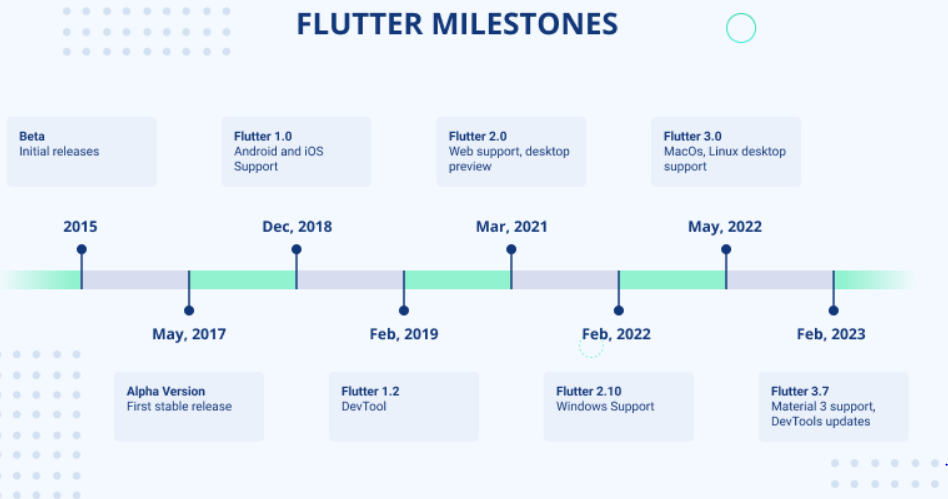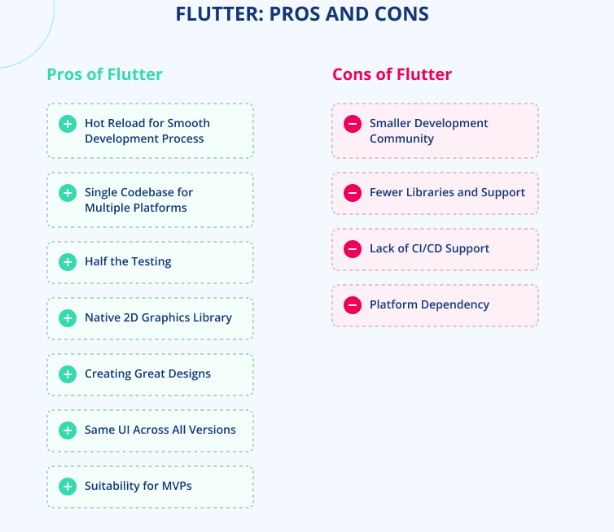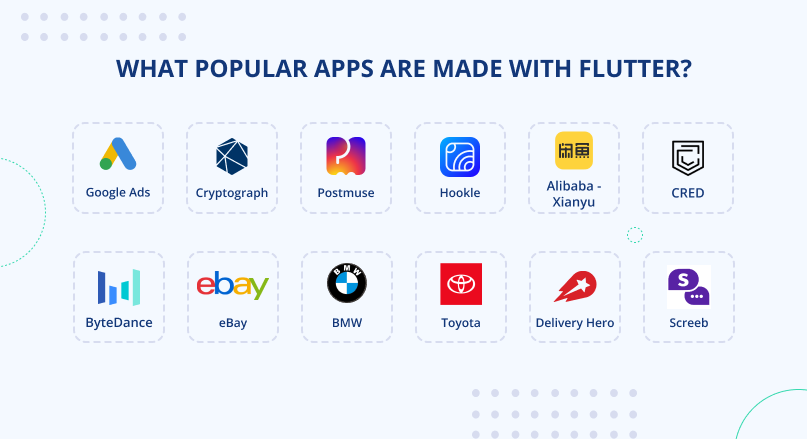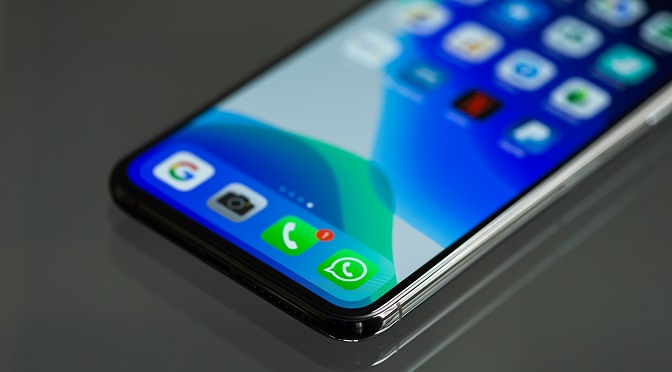Flutter is Google’s user interface design toolkit, which allows app developers to create engaging user experiences and native applications for mobile, web, and desktop. Launched in December 2018, its user base grew to 2 million within 1.5 years. StackOverflow data shows Flutter is the third most loved framework, with 68.8%.

What’s more, developers have used Flutter regardless of whether they create an app for startups or enterprises. In fact, Flutter has already established itself as a major force to reckon with in the app development industry and is now looking to transform the mobile app development industry.
In this article, you will learn about seven ways in which Flutter is transforming mobile app development.
How is flutter transforming mobile app development?
1. Smaller learning curve
Flutter is exciting for new app developers because of its small learning curve and low entry barrier. Flutter is based on Dart programming language, which is a general-purpose programming language, which not only means that it can be used for multiple purposes but also means that you can learn it far more easily as compared to other programming languages.
Even if you have basic knowledge and are just learning the ropes of app development, you can pick up Flutter and develop applications. Thanks to its general-purpose nature, app developers can use it to develop mobile, web and desktop applications.
2. Hassle-free setup and maintenance
Another big advantage of using Flutter for mobile app development is that it is easier to set up and maintain apps. If any errors or issues are found, making changes can be swift as you don’t have to go back and forth in the code to make changes.
What’s more, it also enhances the user experience by improving the performance of mobile apps like cheap dedicated servers, a benefit you won’t get with other mobile application frameworks. Getting started is extremely easy, thanks to the minor learning curve associated with Dart and Flutter.
3. Single codebase
The thing that really made Flutter stand out from the rest of its competitors is its single code base and write once and use everywhere approach. This means that app developers won’t have to write different codes when creating applications for different platforms.
Since it is a cross-platform mobile app development framework, it can drastically reduce the effort required for creating mobile applications and increase the efficiency of your mobile app development process. Moreover, it also enables app developers to improve every aspect of their mobile application, from its design to quality, user experience to performance, just like migrating from shared hosting to cheap dedicated server hosting would.
In fact, its single code base is the main reason behind its smaller learning curve and easy-to-set-up and maintain apps.
4. Hot reloading
Hot reloading is another unique feature that gives Flutter a clear advantage over other frameworks. Hot reloading allows developers to see changes they have made to their code in real time. This means that app developers can see the progress side by side while writing the code.

This helps them visualize every line of code’s impact on the output. If they find some errors, they can quickly be detected and corrected. This saves them from costly rework later down the line and helps a lot with bug fixing.
All this can positively impact their overall productivity, which means that they could create more apps in a shorter span of time, enabling businesses to bring new apps faster to the market. This can come in handy, especially if you have a tight deadline to meet.
5. Efficient code creation and testing
The efficiency of the Flutter app development process is extremely high, thanks to a single codebase. Since you only need to create code once, it can accelerate the app development cycles, making it more simple and efficient at the same time.
Additionally, app developers can reuse the same code they have written with different plugins, reducing the time developers need to develop an app.
This also benefits testing. You only need a simple quality assurance process in place in order to verify the functionality and features of the mobile application and check the cross-platform support of the mobile application. This means that you have to spend less time creating and testing the app, which can minimize the time required for creating and publishing the app. This is another reason why most app developers tend to prefer Flutter for mobile app development.

6. Minimum viable product ready
Another advantage of Flutter that most app developers tend to ignore is that it is an ideal choice for creating a minimum-viable product. This can help you show investors and clients how your app might look and perform when it is ready.
More importantly, it allows you to collect feedback and make necessary changes if any are on the spot. This saves developers from making major changes in the app development project at the end, which is not easy by any means. It can also come in handy when it comes to identifying and fixing security issues present in your mobile app.
7. Ability to leverage widgets
If you have been doing app development for a while, you might be familiar with widgets and their role in your mobile app’s user interface. Flutter can seamlessly integrate with many widgets, such as navigational, form and scrolling, enabling app developers to unlock their full potential.
Developers can also customize them irrespective of the screen size they might be displayed on. Thanks to its seamless integration with widgets, you can create apps that can deliver a consistent and stable user experience like a VPS Singapore.
How is Flutter transforming mobile app development, in your opinion? Sound off in the comments section below.



